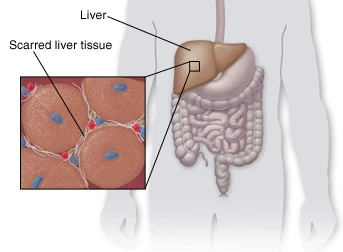Hepatitis is a disease that affects the liver. There are many types of hepatitis. One of the most common is hepatitis C, which is caused by the hepatitis C virus (HCV). In some cases, hepatitis C goes away on its own. But for most people, hepatitis C is a chronic (lifelong) condition.
How Are People Infected?
HCV spreads from person to person through blood. HCV infection can occur when blood containing the virus enters a healthy person’s body. A person may become infected by:
- Receiving a blood transfusion or organ transplant before 1992, or clotting factors made before 1987. (Today, these products are all screened for HCV.)
- Receiving kidney dialysis over a long period of time.
- Using injected drugs, even once.
- Having unprotected sex with an infected partner. (Being infected this way is rare, but is more likely for people with many partners.)

How HCV Affects Your Body
Once HCV enters the body, it travels through the bloodstream to the liver. There, HCV can cause inflammation. This means that liver tissue becomes swollen and irritated. Over time, inflamed liver tissue is replaced by scar tissue (fibrosis). As the liver becomes scarred, it may be less able to do its work. After many years of damage, the liver might even stop working. This can cause serious health problems, or even death.
